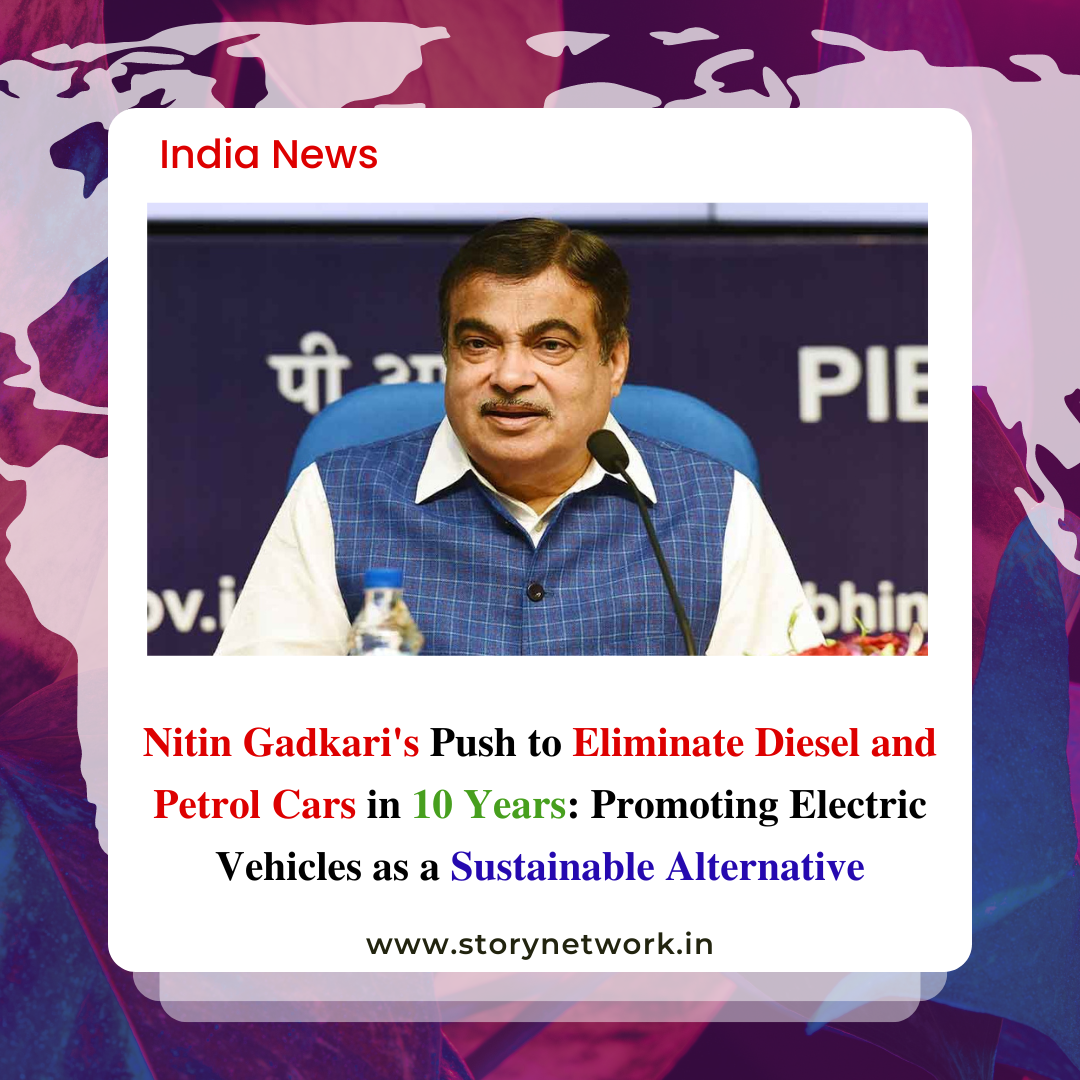In a bold and unprecedented declaration, Nitin Gadkari, the Minister of Road Transport and Highways of India, has announced his ambitious vision to eliminate diesel and petrol cars from Indian roads within the next decade. This sweeping initiative aims to transform the nation’s automotive landscape, making way for a more sustainable and eco-friendly future dominated by electric vehicles (EVs). As the world grapples with climate change and environmental degradation, India’s move signals a significant step towards reducing carbon emissions and fostering green technology.
A Revolutionary Shift Towards Electric Vehicles
Gadkari’s announcement comes at a time when electric vehicles are steadily gaining traction across the globe. The minister emphasized the economic and environmental benefits of EVs, noting that while diesel costs can soar to ₹100 per liter, electric vehicles operate at a fraction of that cost, consuming electricity worth only ₹4. This stark contrast highlights the potential savings for consumers, alongside the environmental advantages of reduced fossil fuel dependency.
Electric vehicles, powered by clean energy, emit no tailpipe pollutants, thereby significantly cutting down on air pollution—a persistent issue in many Indian cities. The push towards EVs is also aligned with global efforts to combat climate change by reducing greenhouse gas emissions. Gadkari’s vision underscores the urgency of transitioning to cleaner energy sources, aiming to set a precedent for other nations to follow.
Policy Support and Infrastructure Development
To realize this ambitious goal, the Indian government is expected to roll out a series of supportive policies and incentives. These may include subsidies for EV buyers, tax benefits, and investment in charging infrastructure. The development of a robust and widespread network of charging stations is crucial to addressing one of the major hurdles in EV adoption—range anxiety. Ensuring that EV users have easy access to charging points will be key to fostering confidence in electric mobility.
Moreover, the government might also introduce stricter regulations on emissions for traditional internal combustion engine vehicles, gradually phasing them out in favor of greener alternatives. Collaborations with automotive manufacturers to ramp up the production of EVs and investments in research and development for advanced battery technologies will further bolster this transition.
Economic Implications and Industry Response
The automotive industry, a significant contributor to India’s economy, is poised for a transformative shift. Automakers are likely to accelerate their efforts to innovate and diversify their product portfolios to include a range of electric models. This shift could stimulate economic growth through new investments, job creation in the EV sector, and advancements in related industries such as battery manufacturing and renewable energy.
However, this transition also poses challenges. Traditional car manufacturers and workers within the industry might face disruptions as the demand for conventional vehicles diminishes. The government will need to implement measures to manage this transition smoothly, possibly through retraining programs and support for affected industries.
Environmental and Social Impact
The environmental impact of moving away from diesel and petrol cars cannot be overstated. Reducing reliance on fossil fuels will lead to a substantial decrease in air pollution, improving public health outcomes. Cleaner air will contribute to lower incidences of respiratory and cardiovascular diseases, which are prevalent in urban areas plagued by vehicular emissions.
Socially, the adoption of electric vehicles can democratize access to clean and affordable transportation. With lower operating costs, EVs can become a viable option for a broader segment of the population, enhancing mobility and contributing to social equity. Additionally, the decrease in noise pollution from quieter electric motors will enhance the quality of life in densely populated urban centers.
Challenges and the Road Ahead
Despite the promising prospects, several challenges remain. The upfront cost of electric vehicles, although declining, still poses a barrier for many consumers. Ensuring the affordability and accessibility of EVs will be crucial for widespread adoption. Moreover, the production of EV batteries involves significant environmental and ethical considerations, including the mining of raw materials such as lithium and cobalt.
Developing sustainable and ethical supply chains for these materials will be a critical component of the transition.Infrastructure development, particularly in rural and remote areas, will require substantial investment and planning. Ensuring a seamless and reliable charging network across the country is essential for fostering trust in the new technology.
Public awareness and acceptance are equally important. Educational campaigns highlighting the benefits of EVs, coupled with positive incentives, can drive behavioral change. Encouraging public and private sector collaboration will also be vital in creating a conducive ecosystem for electric mobility.
Conclusion:
A Visionary Step Towards a Greener Future
Nitin Gadkari’s vision of eliminating diesel and petrol cars from India within the next decade is a landmark announcement that could reshape the nation’s automotive and environmental landscape. By embracing electric vehicles, India has the opportunity to lead by example in the global fight against climate change.
This bold initiative, supported by comprehensive policy measures, infrastructure development, and industry collaboration, can pave the way for a sustainable and prosperous future. The journey towards this ambitious goal will undoubtedly be challenging, but the potential benefits for the economy, the environment, and public health make it a visionary step worth pursuing.





